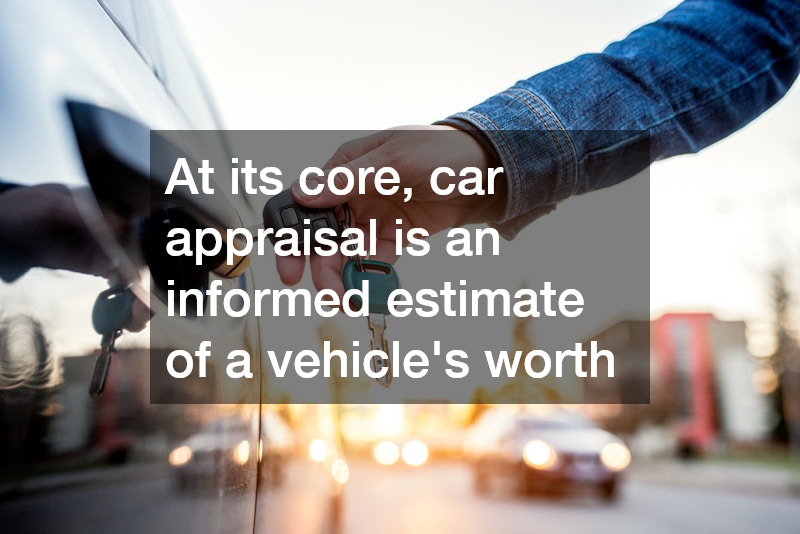
Understanding the ins and outs of professional car appraisal is crucial for anyone looking to sell, buy, or insure a vehicle. In this article, we will delve into the key components of the car appraisal process, providing insights into how values are determined and what factors influence them. Whether you aim to list your car for sale, buy a new one, or ensure you have adequate insurance coverage, knowledge of the appraisal process is a valuable asset.
What is a Professional Car Appraisal?
At its core, car appraisal is an informed estimate of a vehicle’s worth. This valuation process is essential for various scenarios, like buying, selling, or insuring a vehicle. Conducted by trained appraisers, these assessments consider numerous factors, like the car’s make, model, year, condition, and market trends. In essence, professional car appraisals provide an unbiased look at a car’s value, ensuring that transactions are fair and equitable for all parties involved.
Car appraisers are skilled experts trained to assess vehicles comprehensively. They possess an in-depth understanding of market values and industry standards for different vehicle types. Using a combination of experience, knowledge, and access to the latest resources, appraisers evaluate everything from a vehicle’s exterior condition to its mechanical performance. Such evaluations help owners and potential buyers make well-informed decisions based on realistic market valuations.
Car appraisals come in various forms, each catering to specific needs and scenarios. Common types include dealer trade-ins, insurance claims, financing appraisals, and private party sale appraisals. Each type follows distinct guidelines tailored to its purpose, but all share the goal of providing an accurate vehicle valuation. Understanding these different appraisal types will help you choose the right one for your specific situation and ensure an appropriate assessment.
How is a Car’s Value Determined?
A multitude of factors influence a car’s appraised value. Key considerations include age, mileage, make, model, and trim level. Appraisers also look at a vehicle’s condition, accident history, and any modifications made, which can either enhance or detract from its value. Additionally, market trends and geographic location play significant roles in determining value, showcasing how the appraisal process reflects dynamic external influences.
The appraisal process typically begins with an initial inspection where appraisers examine the vehicle’s exterior, interior, and mechanical components for any defects or enhancements. This is followed by a detailed evaluation of the car’s history report, condition, and available documentation. Finally, appraisers compare the vehicle to similar models on the market, using industry tools and databases to determine a fair and accurate value.
Appraisers rely on various tools and methods to facilitate the valuation process. Standard resources include price guides like Kelley Blue Book and Edmunds, as well as online databases that track market trends and sales data. Many appraisers also utilize proprietary software that aggregates information from multiple sources, providing a comprehensive view of the current market landscape. These tools enable appraisers to offer credible, data-driven assessments.
What Role Does Vehicle Condition Play in Appraisal?
The exterior condition of a vehicle is one of the first elements appraisers examine. Factors like paint quality, body damage, and the state of tires significantly affect the overall impression and valuation. Regular cleaning, scratch repairs, and addressing dents or rust can enhance the exterior’s appearance, contributing to higher appraisal values. Appraisers often use industry standards to gauge the condition and assign a quantitative rating.
The interior condition and amenities of a vehicle play an equally crucial role in its appraisal. Elements such as seat upholstery, dashboard condition, and functionality of electronic systems are scrutinized. Vehicles with well-maintained interiors and desirable features, like advanced infotainment systems and premium materials, typically command higher values. Paying attention to cleanliness and promptly addressing wear and tear can bolster the car’s appeal.
A car’s mechanical health is paramount in determining its appraisal value. Appraisers assess engine performance, transmission condition, and braking systems, among other mechanical components, to ensure they are in good working order. Issues like unusual noises, fluid leaks, or performance inconsistencies can negatively impact a car’s value. Regular maintenance and timely repairs are essential practices to maintain a vehicle’s mechanical integrity and enhance its appraisal outcome.
How Can You Increase the Appraisal Value of Your Car?
Regular maintenance is fundamental to sustaining a vehicle’s value. Simple steps, such as oil changes, tire rotations, and fluid checks, contribute significantly to a car’s longevity and performance. Addressing minor issues before they escalate, such as brake pad replacements or filter swaps, can prevent costly repairs and maintain an optimal appraisal value. Staying consistent with maintenance not only enhances performance but also instills buyer confidence during resale.
Strategic enhancements can elevate a vehicle’s appraisal value beyond standard maintenance. While tasteful improvements like alloy wheels, upgraded sound systems, or new seat covers may offer aesthetic and functional benefits, it’s important to avoid over-customization, which can deter potential buyers. Opt for upgrades that align with widespread preferences and can be justified by increased utility or enhanced comfort.
Market trends can significantly impact a vehicle’s appraisal outcome. For example, increased demand for fuel-efficient cars during spikes in gas prices can elevate the value of such models. Keeping an eye on market dynamics and timing your appraisal during favorable conditions can maximize your vehicle’s value. Understanding trends such as seasonal price fluctuations or shifts toward electric vehicles allows you to strategically schedule appraisals for optimal results.
Obtaining a professional car appraisal is a detailed process that hinges on various factors, from the condition and documentation of the vehicle to market demand and the skill of the appraiser. By understanding this process, car owners and prospective buyers can make informed decisions and potentially increase the value of their vehicles. Whether preparing to buy, sell, or insure a vehicle, awareness of these factors ensures transactions are equitable and reflective of true market conditions.

